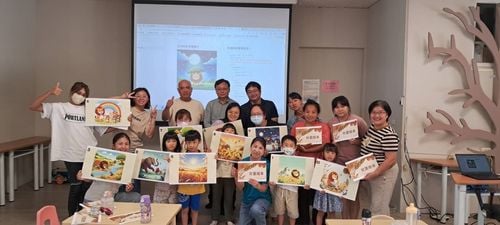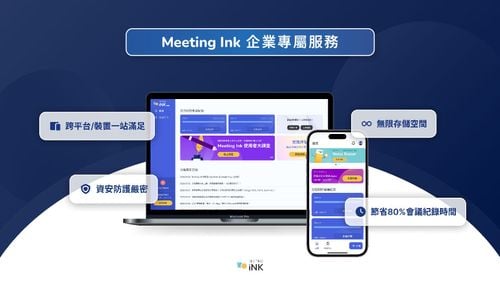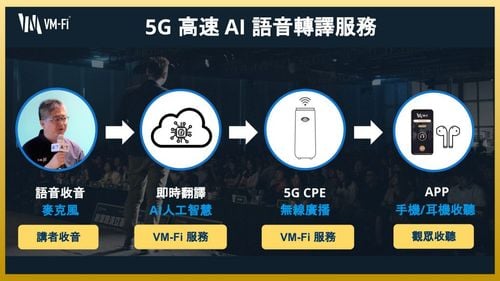【2022 Solutions】 After five years of hard work in image recognition, Touch Cloud won the Smart City Innovation Application Award
During the opening ceremony of the 2022 Smart City Summit & Expo co-organized by the National Development Council, Ministry of Foreign Affairs, Taipei City Government, Taoyuan City Government, Kaohsiung City Government, and Taipei Computer Association on March 22, 2022, founder and president of Touch Cloud Cheng-Hsun Li went on stage to receive the "2022 Smart City Innovation Application Award_Smart Security Award." This award is hard-won because after five years of hard work, Touch Cloud brought its core technology of AI image analysis back to Taiwan after gaining popularity in overseas markets, becoming an important smart city solutions provider.
"Since the company was established, we have positioned ourselves to make AI products that are stable, easy to use, and truly needed by the market." The company's positioning is very clear, this step took Touch Cloud five years. It was not until the beginning of 2020 that Touch Cloud launched its first intrusion detection product. In less than two years, Touch Cloud has now launched seven products, with each product receiving excellent reviews from the market.
Specializing in the field of smart cities, Touch Cloud successfully entered the Asian market
Founded in February 2016, Touch Cloud originally focused on AOI defect detection. However, the definition of defects is different for every customer. As a result, applications in this field are mostly project development and could not be commercialized. The company later directed its efforts to AI Application Box, a product that integrates software and hardware, and focused on smart cities, including transportation, industrial safety, and security related markets.
In view of the high acceptance and price advantage of AI in overseas markets, Cheng-Hsun Li targeted the overseas market in the early stages of the company's development, and has produced many successful results in several major countries, including Hong Kong, Singapore, and Thailand. Among them, Touch Cloud successfully entered the Hong Kong market with its debut in the Hong Kong International Airport project.
In 2018, Hong Kong International Airport planned to monitor ships around airline oil storage platforms to prevent ships from colliding with the oil storage platform. However, the oil storage platform is located in the middle of the sea and lacks electricity and Internet connection, so it could only set up a camera on shore 3 km away from the platform. In addition to the long distance and poor line of sight, monitoring was also affected by weather conditions, such as clouds and fog, and was ineffective. Touch Cloud customized an AI algorithm specifically for the project, and continuously collected image data for model training. It took half a year of discussions with the customer and system corrections to finally achieve an accuracy rate of 98%, successfully completing the goal.
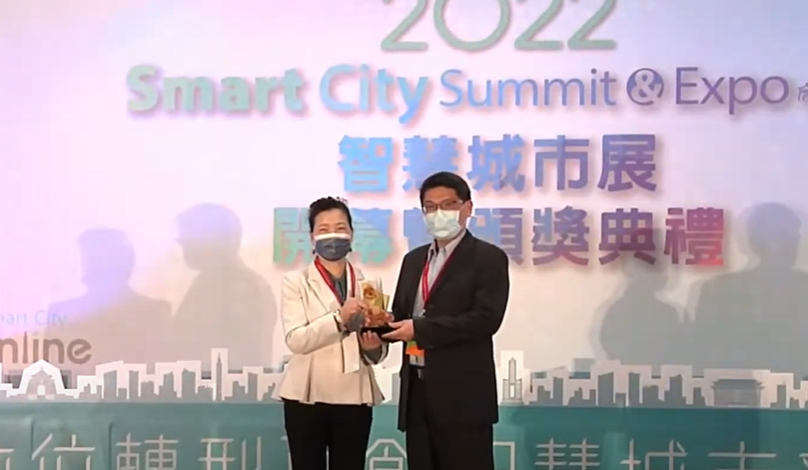
▲ Touch Cloud won the 2022 Smart City Innovation Application Award_Smart Security Award. Minister of Economic Affairs Mei-Hua Wang (on the left), Touch Cloud founder and president Cheng-Hsun Li (on the right)
Touch Cloud products have three advantages that provide customers with a better AI user experience: 1. Plug and play; 2. Provides flexible services, in addition to standard products, customized services meet customers' needs for quick launch and reliable problem solving; 3. High adaptability and ability to achieve extremely high recognition accuracy in different environments.
Cheng-Hsun Li believes that the design of AI products should be as simple as using a "home appliance" and have a clear purpose. Therefore, Touch Cloud built an AI Application Box to design products from the perspective of scene applications, focusing on image analysis related to "people" and "vehicles." At present, a total of seven products have been developed, including KekkAI (personnel intrusion detection, card swiping and tailgating detection), KekkAI-H (construction site safety detection), Abaci-P (people flow and head count), Abaci-V (traffic flow and vehicle count), Greygoose (personnel intrusion detection and people flow), GotchA! (cross-camera person tracking / search), and AI@Sense (license plate recognition).
Cross-camera tracking product GotchA! won the Smart City Innovation Application Award
GotchA! is the product that won the Smart City Innovation Application Award. This cross-camera tracking product is unique in the market. Its system uses AI technology to search and track people by analyzing their features at the time. Users can use image search to search for the path of a specific person in multiple cameras; they can also use multiple appearance features to find suitable target groups. Using GotchA!, you can actively search for lost people, understand the shopping behavior of VIP customers in the mall, and even manage the footprints of visitors in the building.
For example, it is not uncommon for children to get lost in hypermarkets. GotchA! can access footage from the entrance camera for an image search, and compare the walking path of the child to quickly find the missing child. Using GotchA! in shopping malls and amusement parks, where people come and go, to find lost people. It not only significantly reduces the time spent by 90%, but also transforms the traditional approach of the service counter making an announcement to the lost person into an active search based on image analysis, thereby improving service levels and accuracy.
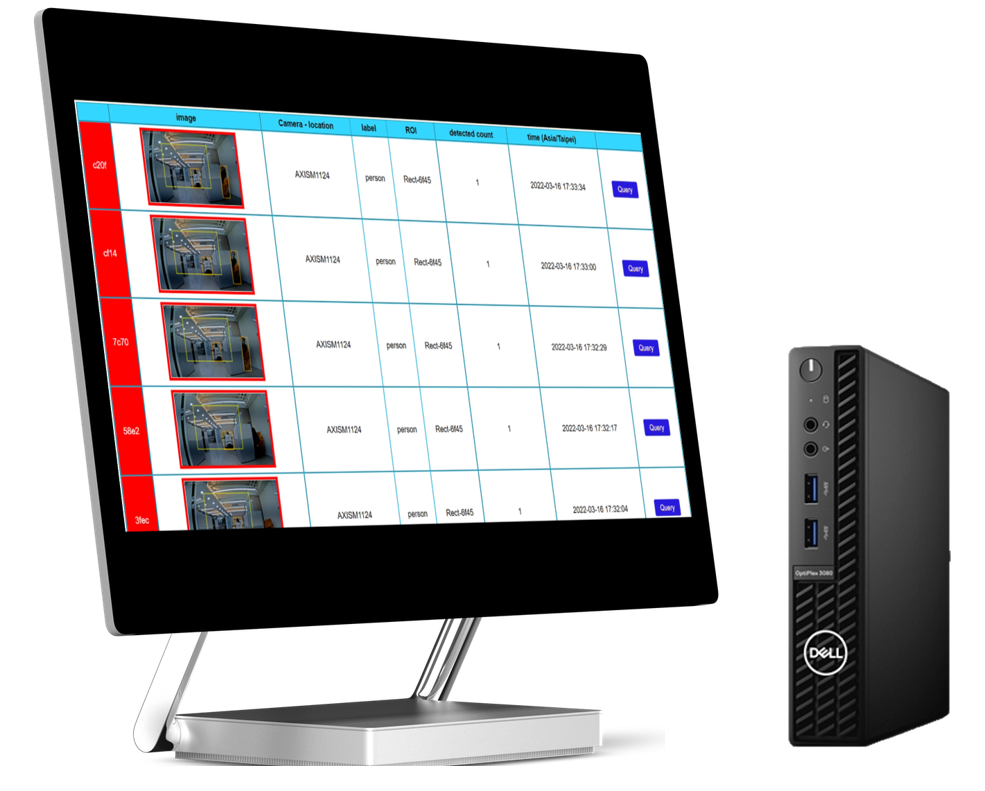
▲ Touch Cloud's excellent AI image analysis technology is favored by large enterprises
Cheng-Hsun Li said that his experience abroad has taught him to help customers find AI usage scenarios. For example, a T-Bar (large advertising billboard) operator in Thailand wants to attract business, and advertisers want to understand the flow of people to evaluate advertising effectiveness. The T-Bar company has more than 1,000 cameras and can determine the type of vehicle from the images and then calculate the number of people, which can be converted to advertising effectiveness.
After Touch Cloud used the data for training, it can even identify special vehicle types in various countries. For example, the "pickup truck" is a special vehicle type in Thailand. Model training is carried out through Open Data, scenario data, and Touch Cloud's self-built database, and can accurately identify traffic flow and vehicle type, which is used to estimate the number of people reached by the advertisement.
Rapid business development after returning to the Taiwan market from overseas
Touch Cloud currently accounts for 70% of the overseas market, with customers in Thailand, Hong Kong, Singapore, Malaysia, Japan, South Korea, and the Philippines. In the future, it will also develop into other Asian markets, such as Vietnam. In addition to the Asian market, Touch Cloud has not forgotten to serve Taiwanese customers, and began to actively recruit partners to jointly develop the Taiwan market in June 2021. So far, the number of customers has quickly accumulated to more than a hundred.
Touch Cloud's excellent AI image analysis technology is favored by many companies, and most investors are strategic partners, working together to create synergies and allow Touch Cloud's technology to be quickly applied.
Cheng-Hsun Li said that it often takes more than five years for an AI startup to get its operations on track, and it takes at least three years to cultivate good AI talents. Results are gradually emerging thanks to the considerable flexibility and space given by strategic investors to the company.
Touch Cloud products are already being put into practical use in major Asian countries such as Hong Kong, Singapore, Thailand, South Korea, and Japan, and are expected to enter more Asian countries within two years, driving more advanced image analysis applications. The company hopes to complete representative cases in Asian markets every year, and move towards an IPO as a company featuring AI products.
